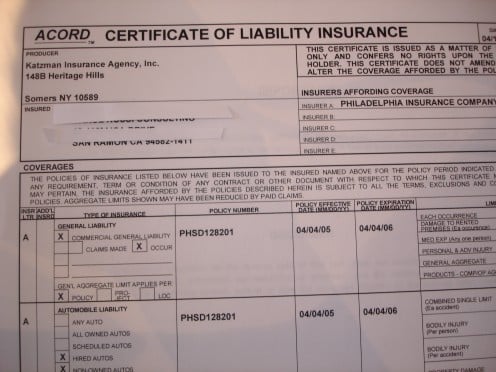Avoid Subcontractor Self-Insured Retention Losses

A self-insured retention (SIR) is a specified dollar amount in a commercial liability insurance policy that must be paid by the policy holder before the insurance company will respond to a claim. It is similar to a deductible in a homeowner’s insurance policy, except that a deductible is “deducted” from the total of the claim while the self-insured retention and the liability policy limit are “stacked” (or added together) to cover the total claim. A second important distinction is that the insured must pay the SIR directly to the claimant before the insurance company will get involved. Many of the large commercial insurers such as Zurich, Travelers, XL Group, and Philadelphia sell policies that encourage SIRs as a way to limit overall premiums and many smaller or financially unstable companies take them on to reduce expenses.

Some companies may take on SIRs of $500,000 or more to lower their premiums. The insurer does not investigate the insured’s ability to cover the SIR because it does not have to respond to a claim until the SIR is paid. Unfortunately, this means that if you hire that company as a subcontractor and a claim results from their negligence, you may end up responsible for the loss if the subcontractor is financially unable to meet their SIR obligation. I had this exact situation happen when a subcontractor’s negligence allowed water intrusion into an apartment complex, which led to an extensive mold growth problem. When my client discovered its subcontractor was financially unable to cover its $625,000 SIR, they considered the recent runaway jury verdicts on mold claims and agreed to settle. This was a $625,000 lesson learned the hard way.
Follow these steps to avoid winding up with your subcontractor’s SIR losses.
- Always obtain certificates of insurance from your subcontractors and subconsultants. Do not sign a contract or allow the subcontractor or subconsultant to start work until they have provided this evidence of coverage.
- Establish a procedure to review the types and limits of policies, deductibles, and SIRs. As a rule of thumb, do not hire a subcontractor or subconsultant if they have an SIR greater than $50,000. If there is no option, evaluate the company’s ability to meet its financial obligations. The company should have cash or assets equal to at least the amount of the SIR. If it doesn’t, consider a requirement that they reduce or eliminate the SIR, or require procurement of a bond guaranteeing payment of losses in the event of a claim.
- Require that subcontractors and subconsultants provide annual, audited financial statements so you can review their continued financial health.






